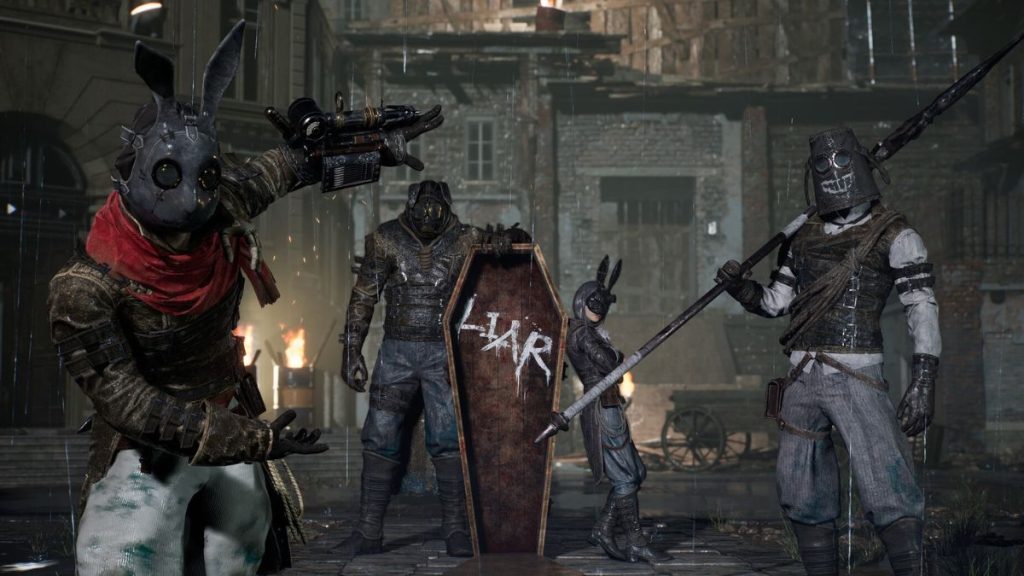It’s time for players to understand that Lies of P isn’t a Bloodborne knock off.,

SUMMARY
- Developed by Round 8Studios, Lies of P is one of the best games on Xbox Game Pass.
- However, many in the community have compared the game to FromSoftware’s popular title Bloodsborne.
Since its release back in 2015, no other title has had a more-requested sequel or remaster than FromSoftware’s Bloodborne. After the changes Dark Souls 2 brought to the franchise under a new direction, players were excited to get their hands on Hidetaka Miyazaki’s next title. Bloodborne went on to become arguably one of the most popular games in the entire FromSoftware catalog until the launch of Elden Ring.
Bloodborne started a boom for the Soulslike genre, sprawling multiple games trying to recreate the success of FromSoftware’s legendary game. One of the games that managed to reach that kind of success was Round8 Studio’s Lies of Pie. However, the game is heavily compared to Bloodborne, though according to the developers, it’s just a coincidence.
Lies of Pi Developer Believes that Bloodborne Similarities Are Purely Coincidental

It’s a known fact that fans these days have grown too accustomed to making quick comparisons between titles that exist in a somewhat-similar genre. Unfortunately, some games have been outright accused of ripping off their competitors, and that’s what’s been happening with Round8 Studio and Neowiz’s Lies of P.
Lies of Pi launched to critical acclaim right at the tail end of summer 2023. Reviewers and players alike commended the title’s intricate crafting system, combat mechanics, inventive enemy designs, and other qualities. Since the game’s release, it has been outright compared to Bloodborne, and many in the community have felt that the developers have straight-up copied some elements of Miyazaki’s popular title.
However, Lies of P’s game director, Choi Ji-won, disagrees with the community’s perception of the similarities. Back in 2021, in an email exchange with Kotaku, Choi revealed although they’re “honored” to have evoked fans to compare Lies of Pi to FromSoftware’s Bloodborne, it wasn’t something that they had done on purpose.
Though we’re greatly honored that many players felt the ‘Bloodborne vibe’ through our trailer release, it definitely wasn’t intentional.
Choi’s interview further compares Lies of Pi’s features with Bloodborne, referring to a similar difficulty level and death penalty. According to Choi, Lies of Pi is just an inherent of the Soulslike title with FromSoftware’s general blueprint.
It’s clear that accusations of Lies of Pi blatantly copying Bloodborne are completely false. The developers have put in a lot of effort to separate the game from other titles in the Soulslike genre. Players need to give the game a shot and then come to a decision instead of just randomly throwing accusations at 8Round Studios.
Soulslike Genre Needs to Move Away Out of FromSoftware’s Shadows

It shouldn’t be surprising that the best games in the Soulslike genre are all from FromSoftware, considering the fact they’re the ones responsible for this subgenre. Bloodborne‘s impact on video games is one that’s still hard to explain properly to this day, but it ended up bringing a new element to heavy compact ARPGs where immense challenge gave way to a feeling of accomplishment.
Lies of Pi has already established itself as one of the better-quality Souslike titles not crafted by FromSoftware. However, in order for the subgenre to escape FromSoftware’s shadow, it will be necessary for companies to elevate their games beyond just being re-skins of the developer’s library of classics. Even though they’re not the same games, Bloodborne‘s constant comparison both helps and hinders Lies of P by limiting it to a very specific framework of criteria for its growth.
